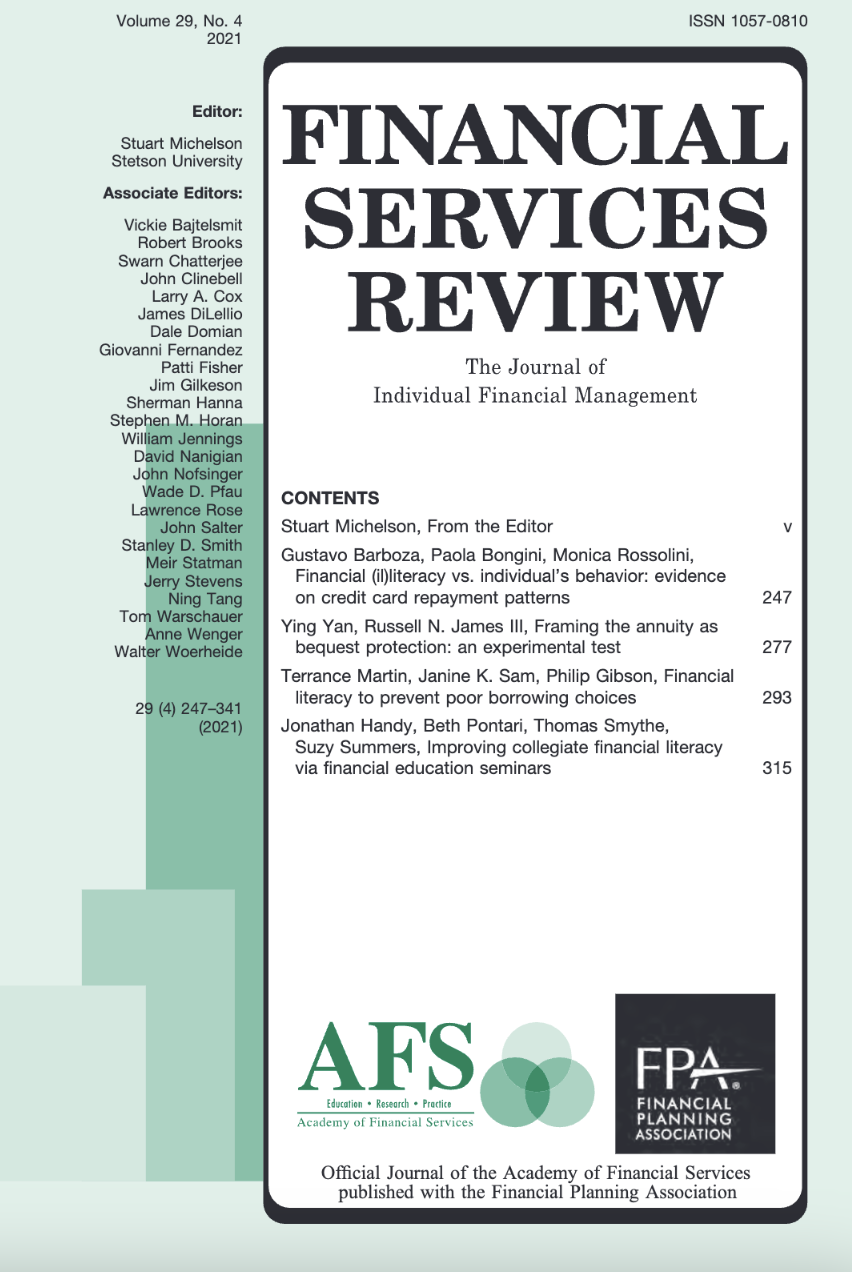Financial (il)literacy vs. individual’s behavior
evidence on credit card repayment patterns
DOI:
https://doi.org/10.61190/fsr.v29i4.3462Keywords:
Financial behavior, College students, Credit card debt, Financial literacyAbstract
We explore the role that financial (il)literacy and personal traits have on financial behavior. Using a sample of 156 college students from the United States, we provide unique empirical evidence by specifically differen- tiating between individuals with higher levels of financial literacy versus individuals declaring not knowing the answers to financial literacy questions and those answering incorrectly. Thus, we assess the implications of revealed lack of financial knowledge on financial behavior regarding credit card use in comparison with two other cohorts; cohort one answering correctly, and cohort two failing to answer correctly. A novelty of our study is that we contrast these results to the behavioral factors of over spending and surprised levels of spend- ing—proxies for personality traits—when using credit card. Our exploratory empirical findings indicate that among personal-traits considered in this study overspending results in lack of payment in full in credit card debt, and more importantly these effects dominate any gains derived from financial literacy. To this extent fi- nancial literacy appears to only play a marginal role avoiding month-to-month credit card debt. Furthermore, financial knowledge derived from parents has a strong positive effect on individuals’ financial behavior espe- cially for students characterized by a relevant financial illiteracy. The implications of this research support the argumentation that early financial literacy may have the strongest effect in shaping individuals inherent behav- ior patterns; that is, early exposure to financial education is strictly preferred and should be promoted at early stages of the educational system.
Downloads
Published
How to Cite
Issue
Section
License
Copyright (c) 2021 Academy of Financial Services

This work is licensed under a Creative Commons Attribution-NonCommercial 4.0 International License.
Author(s) retain copyright and grant the Journal right of first publication with the work simultaneously licensed under a Creative Commons Attribution-NonCommercial 4.0 International License that allows to share the work with an acknowledgment of the work's authorship and initial publication in this Journal.
This license allows the author to remix, tweak, and build upon the original work non-commercially. The new work(s) must be non-commercial and acknowledge the original work.


